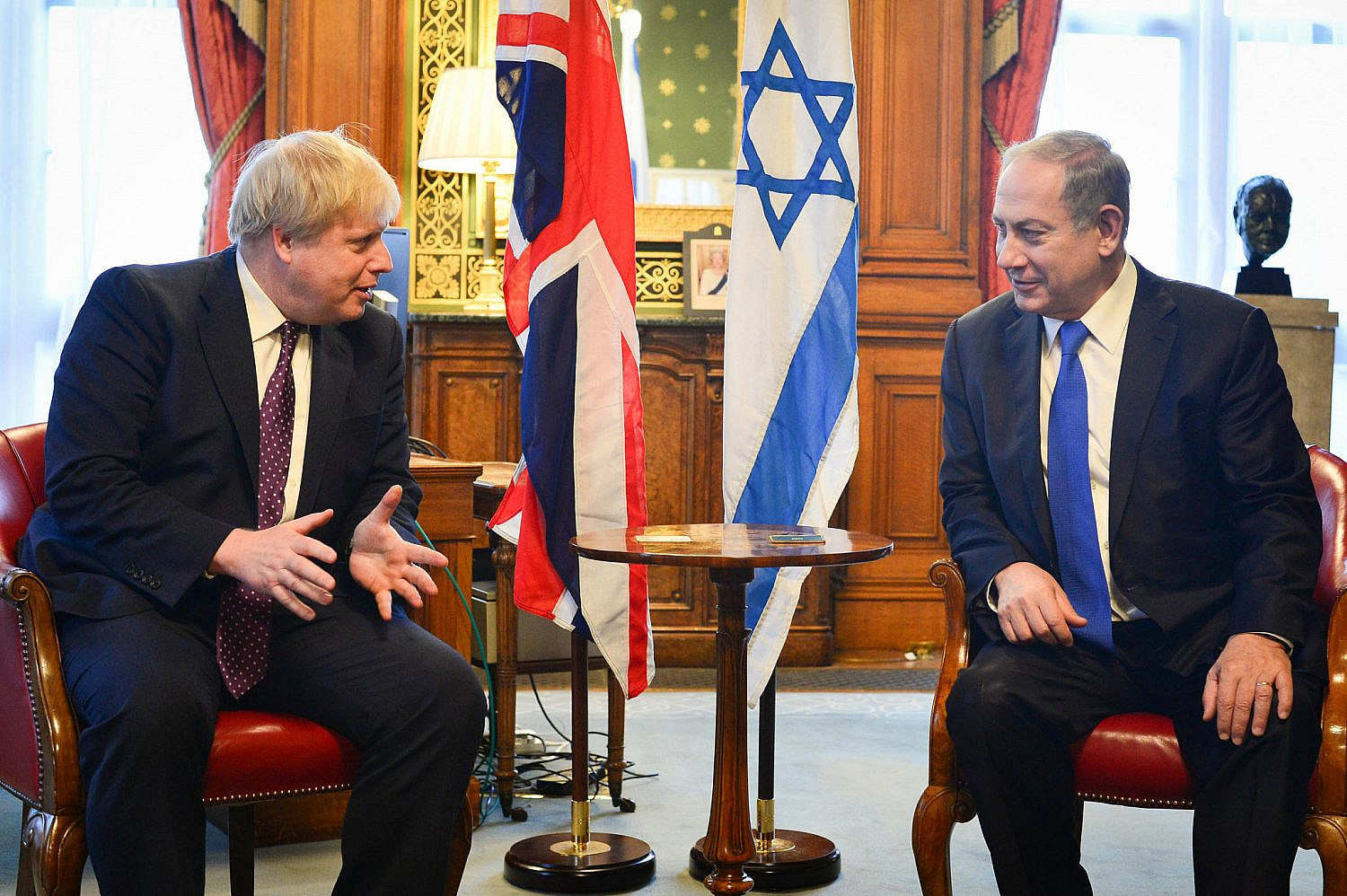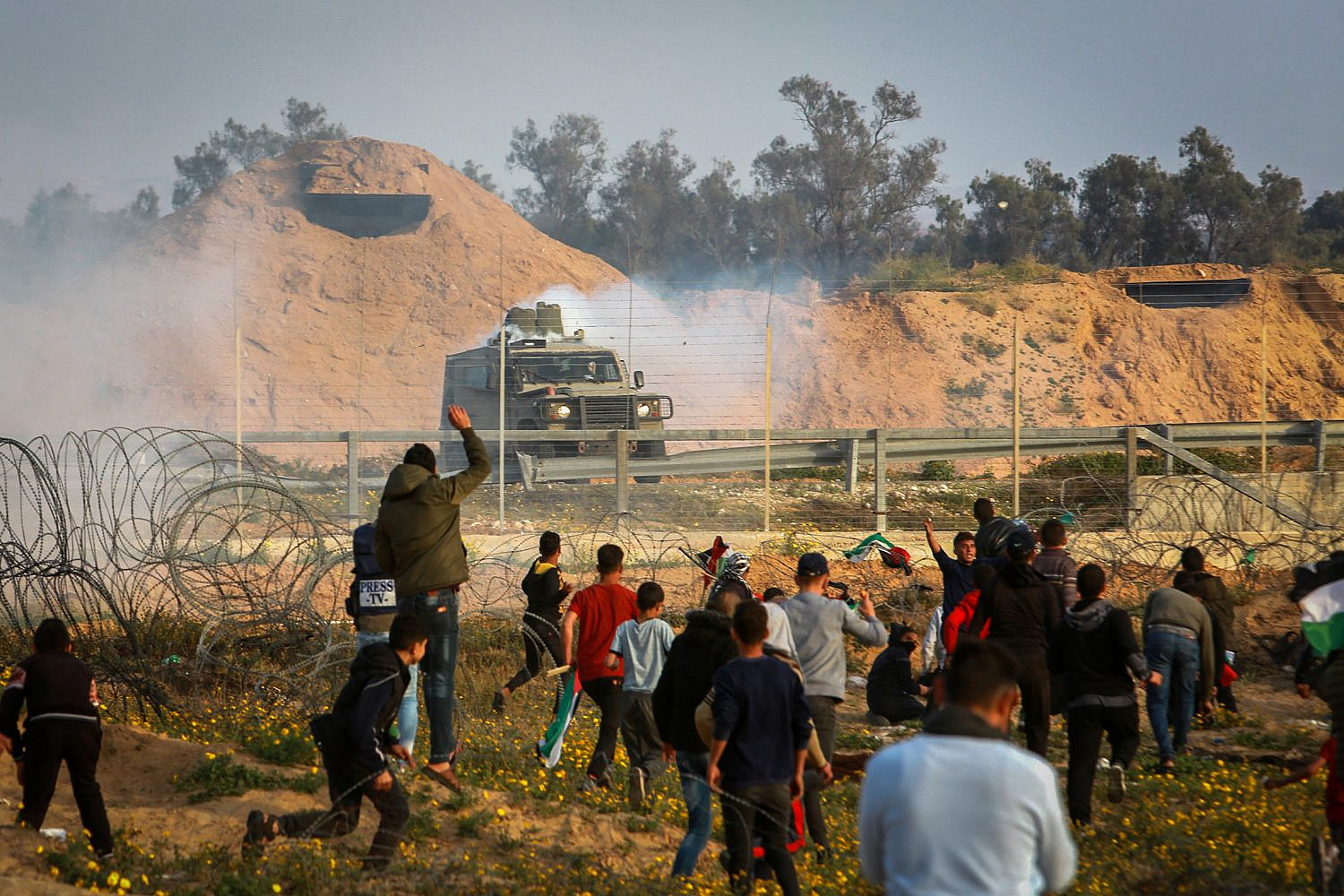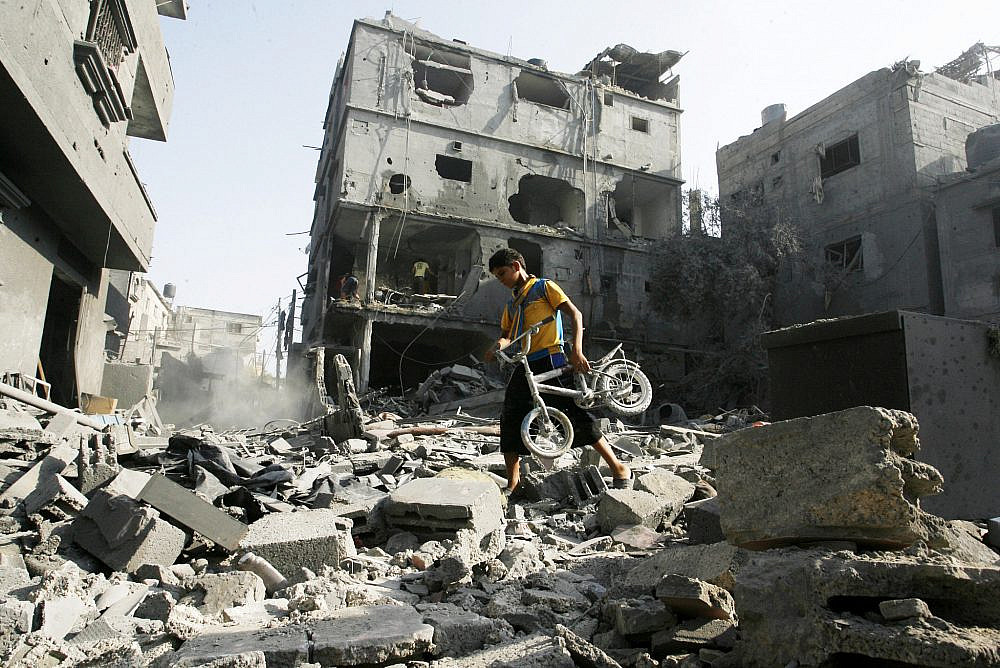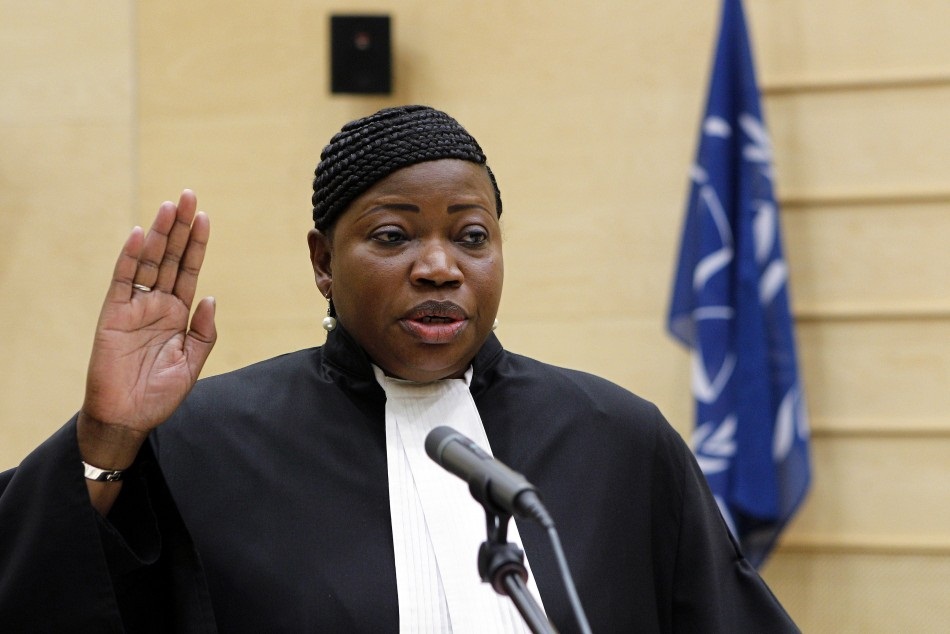The decision last month of the International Criminal Court (ICC) Chief Prosecutor, Fatou Bensouda, to open a full investigation into alleged crimes committed in the occupied Palestinian territories is a welcome one for those promoting human rights and justice. Unfortunately, though, it seems that not all countries agree.
In an April 9 letter to Conservative Friends of Israel, British Prime Minister Boris Johnson wrote that the United Kingdom “oppose[s] the ICC’s investigation into war crimes in Palestine.” The investigation, Johnson added, “gives the impression of being a partial and prejudicial attack on a friend and ally of the UK’s.”
In taking this position, the UK has joined a number of states who seem willing, if not eager, to cement a selective system of international justice, which would prioritize the interests of powerful states over the interests of victims of war crimes and crimes against humanity.
Despite the ruling of the ICC’s Pre-Trial Chamber confirming its jurisdiction in Palestine, many state parties that had submitted arguments to the court opposing that jurisdiction have since made concerning public statements condemning the prosecutor’s move. Through their opposition, these states risk irreparable damage to the court and risk undermining the international legal order — simply to protect a political ally.

A few weeks before Johnson’s letter, Australia released a similar statement that the ICC “should not exercise jurisdiction in relation to [the situation in the State of Palestine].” Germany’s Foreign Minister Heiko Maas echoed this position, stating that Germany’s “legal view” on the case “remains unchanged: the court has no jurisdiction because of the absence of the element of Palestinian statehood required by international law.”
Canada also released a statement that “it does not recognize a Palestinian state and therefore does not recognize its accession to international treaties, including the Rome Statute.” Hungary’s Foreign Minister was also reported to have publicly “disagreed” with the ICC’s decision.
Double standards
Regardless of whether they agree with the ICC’s decision on its jurisdiction, these states — all of which are parties to the Rome Statute — are obligated to comply with their treaty obligations. This may well include future requests for cooperation with the court’s investigation, or carrying out arrest warrants against individuals indicted for crimes committed in the occupied territories.
Ironically, these very same states offered strong support to the court when other states challenged its judicial decisions. This includes, for example, when certain state parties claimed that Omar al-Bashir, the former president of Sudan (which is not a party to the Rome Statute), benefited from immunity, precluding his arrest on their territory over charges relating to suspected crimes committed in Darfur. This resulted in al-Bashir’s evasion of arrest for years, despite two ICC warrants issued against him.

In 2013, for example, after several members of the Rome Statute had failed to arrest President al-Bashir upon visiting their countries, Germany stated that “our Court can only fulfil its mandate with regard to peace building and reconciliation in conflict-affected communities if all States Parties comply with their legal obligations.” Canada voiced a similar plea, “encourag[ing] all states to abide by their international commitments.” Australia also called on state parties “to cooperate with the Court in accordance with the letter and spirit of the Rome Statute.”
Even the words of the U.K. government in 2014 provide a fitting example of that support: “To be successful in ending impunity, it is absolutely vital that we all cooperate with the International Criminal Court — in keeping with the principles of the Rome Statute, which apply equally to all persons without any distinction… and also when our own state is affected.”
One can only hope that those same state parties — who in the past so vehemently, and rightly, urged members to cooperate with the Court — apply the same standards to the ICC’s case in Palestine. It is the role of state parties to defend the ICC’s ability to exercise its independent mandate, not to add pressure of their own to interfere with the Court’s judicial decision-making.
On this point, we should look to Germany, which stated at the Assembly of States Parties meeting in December 2020 that it “objects to all measures that unjustly interfere with the exercise of the Court’s judicial functions… and will relentlessly protect the Court and its staff against any external pressures or threats.” While it may not have been the intention, Germany’s own statement on Palestine just a few months later — especially after the court handed down its ruling — could itself be seen as a way of “unjustly interfering” with the Court’s functions.

It is therefore concerning to see purported supporters of the ICC and of international justice cast shade on the judicial process and abandon victims with such cavalier disregard. It is particularly egregious to make an argument — as many of these states have — that political negotiations between Palestine and Israel should take precedence over an international criminal process, implying that such a process would hinder “a comprehensive, just and lasting peace in the Middle East.”
Such arguments have been made in all conflicts where Rome Statute crimes are committed, and they are never valid. On the contrary, by pursuing accountability, the ICC can play a critical role in breaking the “cycle of impunity” which so often frustrates a durable and just peace.
Court under attack
The ICC faces and has faced many other attacks. Some state parties, for example, have sought to limit the effectiveness of the prosecutor by placing unworkable limits on the court’s budget. Much more concerning have been the attacks from the United States, particularly under the presidency of Donald Trump; although President Joe Biden finally lifted his predecessor’s shameful sanctions on the prosecutor and her staff two weeks ago, there is still uncertainty over how Washington will proceed in dealings with the ICC.
However, if the ICC is to remain an effective, rules-based mechanism to end impunity for crimes under international law, state parties must respect its judicial decisions and the prosecutor’s authority to exercise her discretion. When states challenged the court’s decisions following their failures to arrest President al-Bashir, the legal questions relating to his immunities were finally settled by the ICC’s Appeals Chamber.
The state parties that are challenging the case on Palestine should also respect the court’s decisions now; they may make legal counter-arguments where they have standing to do so, but they must refrain from making political attacks on the court when decisions do not go their way.
It is time for all states to stand up for the rights of all victims of Rome Statute crimes, including those in the occupied territories. As many victims in the OPT told our organization, Amnesty International, “the ICC represents our only hope to achieving long-denied accountability and justice.” And as Amnesty has emphasized before, “all states who claim to support universal and non-selective international justice have a shared interest in supporting the ICC to exercise its jurisdiction over the situation in Palestine.”
It has been clear for some time that, as the Prosecutor moves to open investigations into situations involving powerful states, the ICC and its staff will be increasingly attacked and threatened. Indeed, in the days following the Pre-Trial Chamber’s decision in February, it was reported that Israel would “ask its allies to pressure the ICC prosecutor” against opening an ICC investigation. With a new prosecutor, Karim Khan, set to take office on June 16, we have no doubt that he will strongly resist such pressure and uphold the real and perceived independence of his office.
However, considering the political statements from powerful member states, Khan will be under even greater scrutiny to demonstrate his ability to carry out his mandate without fear or favor. State parties to the Rome Statute should remain steadfast in their support for the ICC, the prosecutor’s independence, and above all, the victims who demand their day in court.


